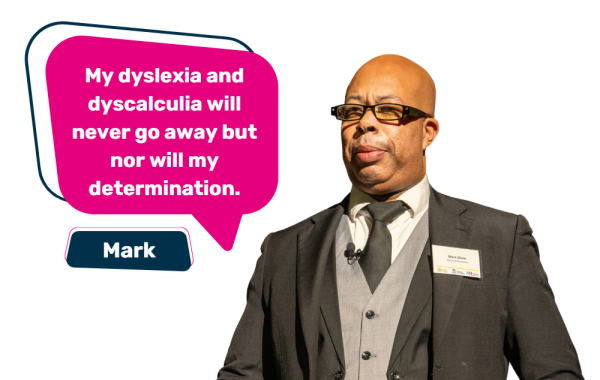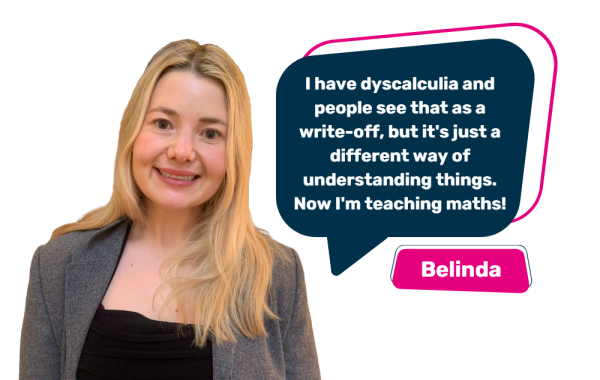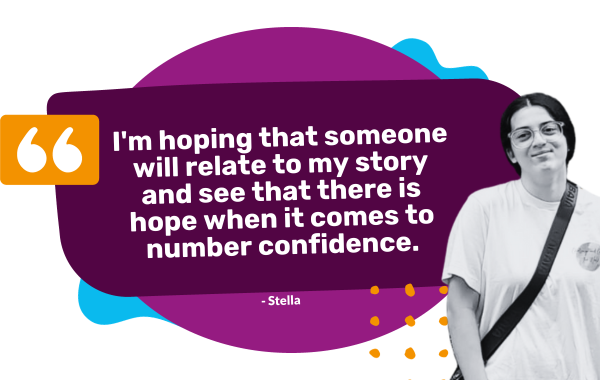Blog
Celebs shine a light on dyscalculia
30 Jul 2025
By Lizzie Green, Communications Officer
Dyscalculia is often described as "dyslexia with numbers" or "number dyslexia", but it is much less well-known and researched than dyslexia, despite being estimated to affect around 4 million people in the UK (6% of the population).
Fortunately, awareness of the learning difficulty – which makes it hard to understand, learn, or use maths – is on the rise. This is partly thanks to figures in the public eye bravely sharing their experiences.
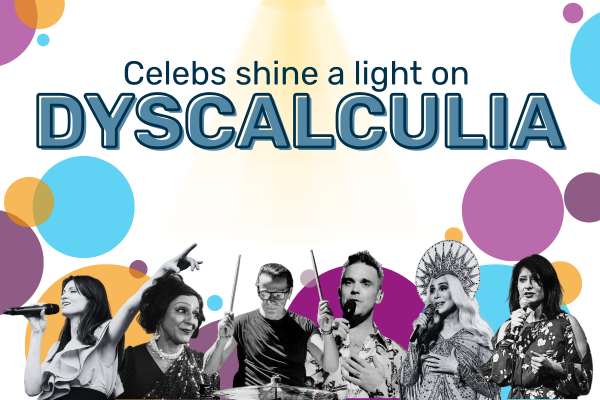
Cher
The 'Goddess of Pop' has a career spanning six decades, is one of the best-selling artists in music history, and has been awarded Grammy, Emmy, Golden Globe, and Academy awards. But did you know she's achieved all of this while living with dyscalculia and dyslexia?
As a child Cher couldn't keep up with school lessons – in her autobiography, The First Time, she described how "math was like trying to understand Sanskrit."
It wasn't until Cher took her son to a testing centre, where she learned that he had dyslexia, that she was asked about her own experiences. In her autobiography, she wrote: "I told them how I kept transposing numbers, and that I'd get so cranky trying to dial long-distance calls that someone would finally have to take the phone and dial the number for me."
In 2011 a fan asked Cher, "if you could turn back time and change one thing would it be to not have dyslexia?”, to which she said, "No! It caused pain, but it's Me!"
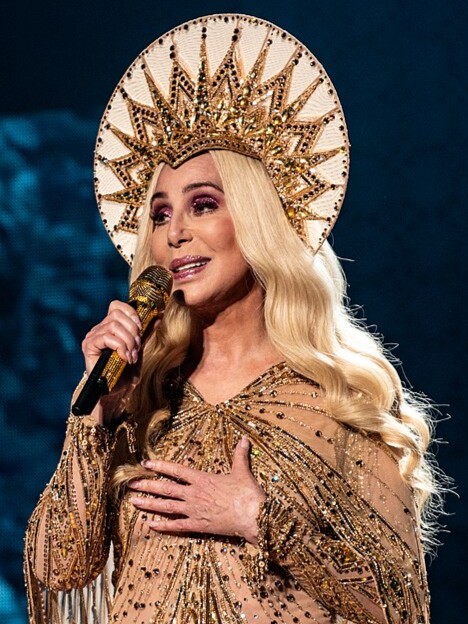
Larry Mullen Jr.
Larry Mullen Jr. is an Irish musician, best known for being the drummer and co-founder of the band U2. In December 2024 he revealed to the Times that he has dyscalculia.
"I've always known that there's something not particularly right with the way that I deal with numbers," he said. "I'm numerically challenged. And I realised recently that I have dyscalculia […] so I can't count [and] I can't add."
It even affects him on stage, as he told the Times: "When people watch me play sometimes, they say, 'you look pained.' I am pained because I'm trying to count the bars. I had to find ways of doing this – and counting bars is like climbing Everest."
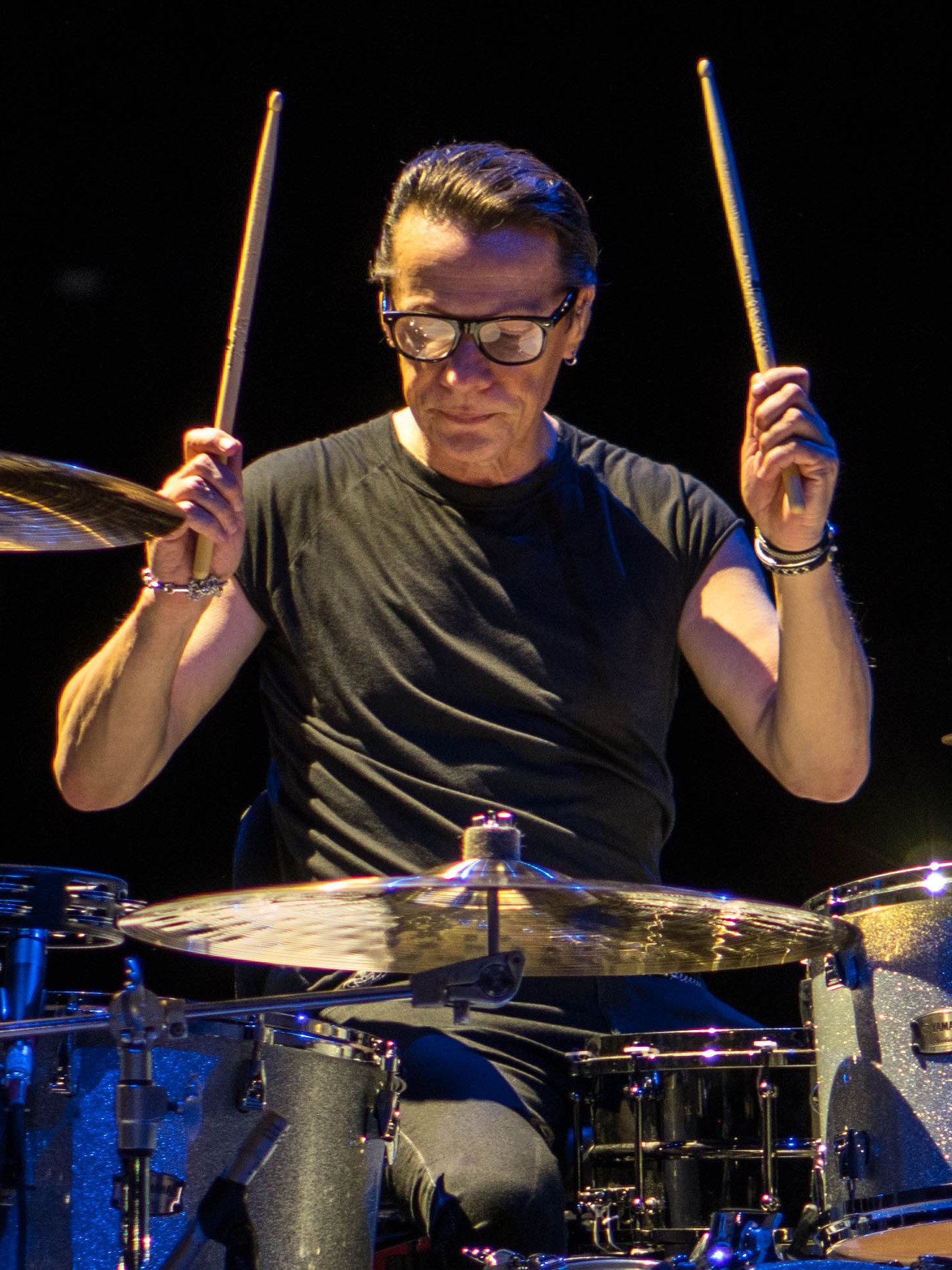
Meera Syal
In 2023, the award-winning comedian, actor, novelist, and BAFTA Fellowship recipient Meera Syal shared her experiences with dyscalculia, and the struggles that come with a lack of awareness around it.
Posting on X, she wrote: 'Maths made me cry-I was a hard working kid with straight As in arts subjects-no amount of "studying" helped. Now I know I have Dyscalculia. My maths teacher just called me stupid. Every kid has different glorious gifts. Find them-encourage them-watch them fly.'
Syal also shared a post from the Dyscalculia Network's Peter Cherry, saying: "Delighted to share this […] I wish your organisation had been around when I was at school! And hope all the parents and pupils who need support will find you too."
Cherry has spoken about his own experiences living with dyscalculia in a video for National Numeracy Day, which you can watch here.
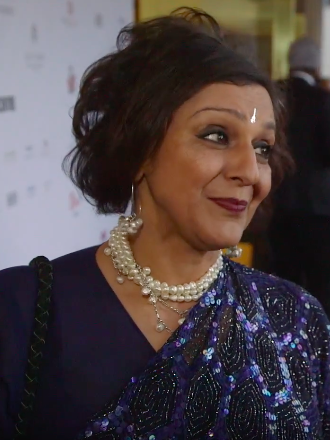
Robbie Williams
Singer and songwriter Robbie Williams is known for being open about the challenges he's faced – as seen in the 2024 film based on his life, Better Man – and he's no different when talking about his dyscalculia and dyslexia.
In 2020, Williams told The Sun "I'm numerically dyslexic. I can't add or subtract. I always get in trouble because I don't know my kids' birth dates and I don't know our anniversary and I don't know my wife's birthday […] I can't even remember our house in Los Angeles. It has four digits at the start of the address and I can't ever remember what those digits are."
A few years later, in 2023, Williams took to Instagram to speak further about living with the learning difficulties. "I actually have dyscalculia too," he wrote, "Phone numbers give me anxiety […] If they're not spaced out I can't read them." He then spoke about the difficulty of trying to calculate a tip when out for lunch with friends, and the relief when they didn't judge him as he asked for help: "I started to sweat. Got the sum wrong. Scribbled it out and in the end I had to ask for help. My new friends were very cool about it. I didn't feel embarrassed."
"What we lack has given us a superpower…go find yours," he wrote to those struggling with education and exams. "You are astonishing. You just don't know yet."
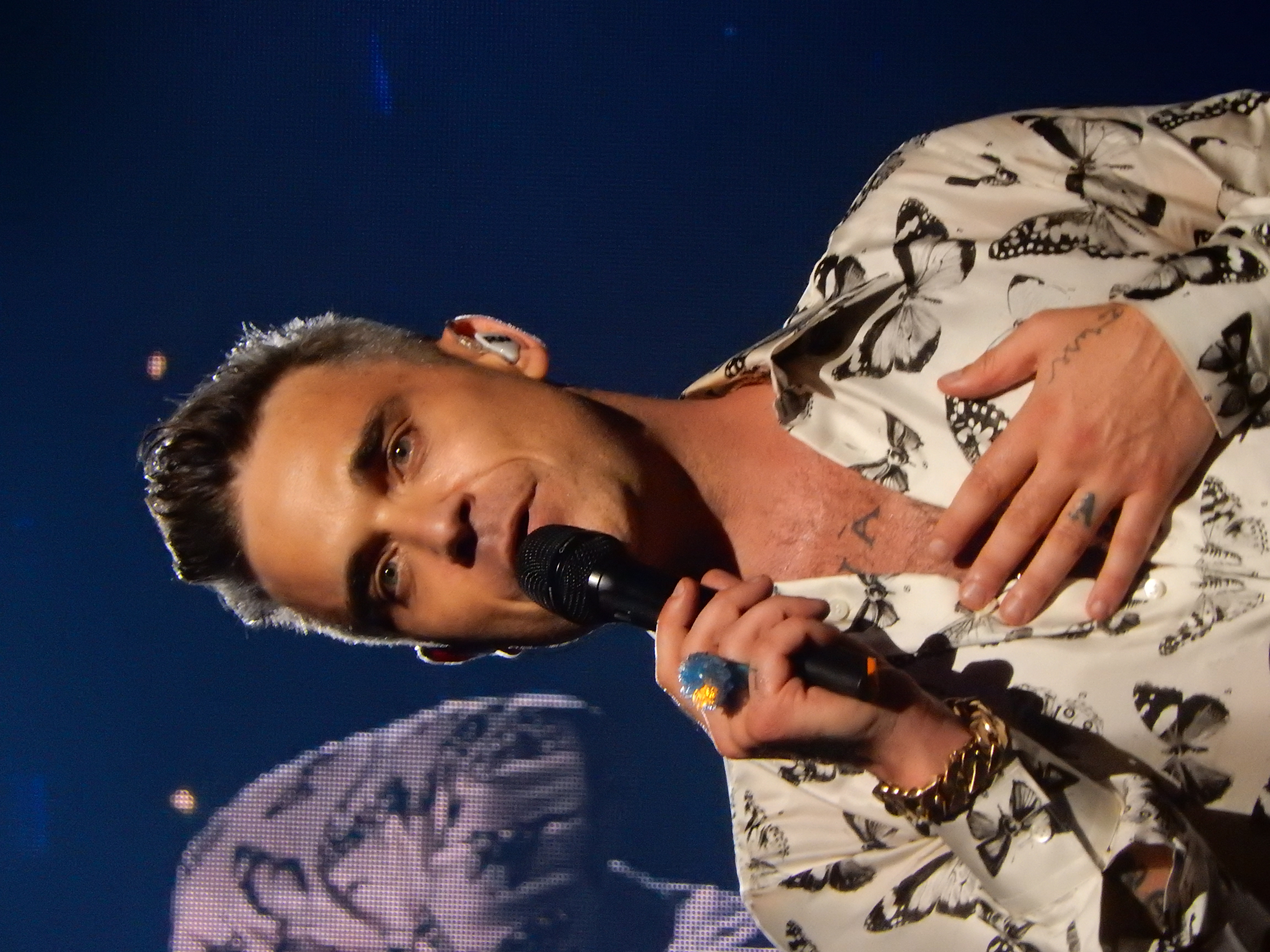
Roman Kemp
TV presenter Roman Kemp recently revealed that he is living with dyscalculia, on an episode of the You About? podcast, which he co-hosts with singer Tom Grennan. While discussing ways they tackle stress, and what causes it, Roman said, "I think the things that I stress mostly about are finance, which is sad."
"I'm not like a big spender, it's not even like that. I think it's because I've got that […] dyscalculia stuff. When I think about numbers, the numbers jumble up in the air for me and I can't see it. [...] It really really stresses me out."
He also spoke about his experiences with maths at school, saying "I had a tutor and I still failed it. I got a 'U' in my first GCSE Maths because I signed my name and walked out."
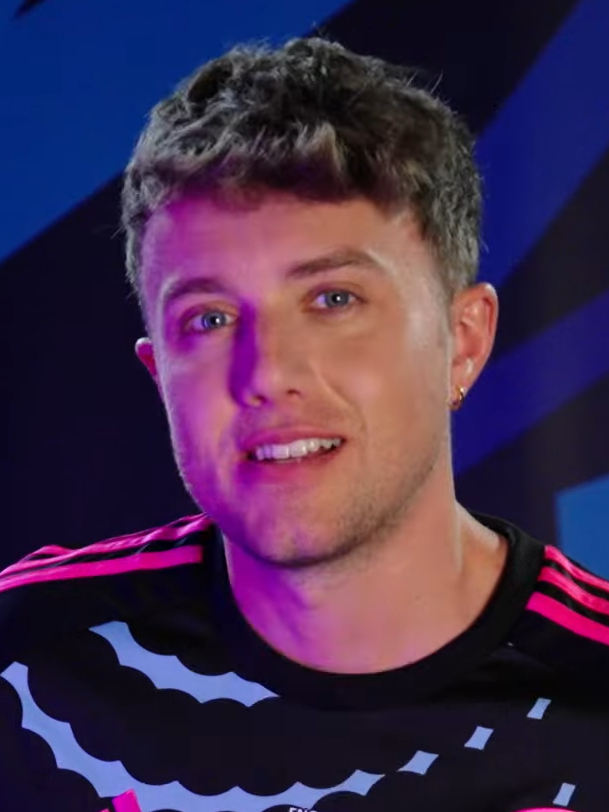
Shaparak Khorsandi
Comedian and author Shaparak Khorsandi has spoken honestly about her struggles with dyscalculia online, posting about how it affected her as a child, but also now as a parent.
During lockdown in 2020, Khorsandi shared a photo of her daughter's schoolwork, saying: "For a stupid amount of time I was explaining to my 6 year old that she should put 30 in the last box. She kept insisting she put 6. My point is, I should not be homeschooling. Dyscalculia is real."
In 2023, Khorsandi shared more about her experiences in a series of posts, saying "I got a D in GCSE maths, made to retake it…got an E. My parents and both my children LOVE maths. I cannot do maths any more than I can flap my arms and fly."
"I would have been better educated if my self-esteem hadn't been eroded by this numpty attitude that dyscalculia can be 'overcome' with a bit of grit. My parents […] understood better than my teachers and let me dance my own way," she wrote. "Learning methods are not 'one size fits all'," she added, sharing a post from the Dyscalculia Network.
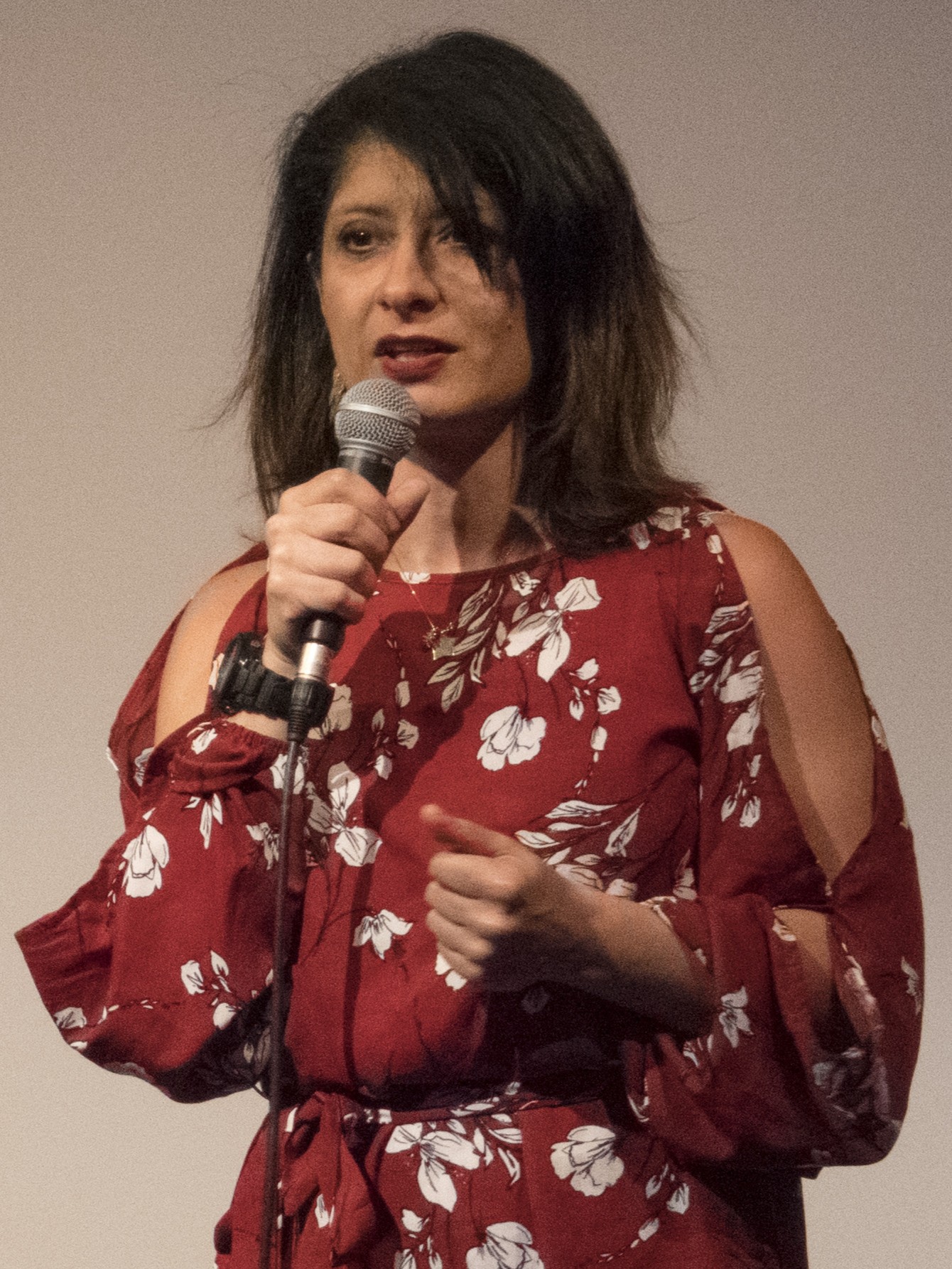
Sophie Ellis-Bextor
Sophie Ellis-Bextor, the singer and songwriter behind such hits as 'Murder on the Dancefloor', is an ambassador for the Dyscalculia Network – a not-for-profit community interest company, supporting and advocating for people with dyscalculia and maths learning difficulties.
While Ellis-Bextor hasn't been diagnosed with dyscalculia herself, she is passionate about it on behalf of her two sons, who have both been diagnosed with the learning difficulty. Speaking to the Dyscalculia Network, she said:
"Two of my boys were diagnosed when they were around 7 or 8 by an Educational Psychologist. It was that age when the coping mechanisms they had been using up to that point clearly just weren't working anymore. I was in the fortunate position of being able to get tutors for my children as I quickly realised that school didn't have the resources to help, and I couldn't either as I didn't know how. So, specialist tutors changed everything because they took the stress out of the situation meaning we were calmer as a family! They also made sure that my boys felt better and more confident with maths which helped them make progress and to feel a lot less alone.
"From my experiences, I have learnt how important early diagnosis, specialist help and support for us all can be."
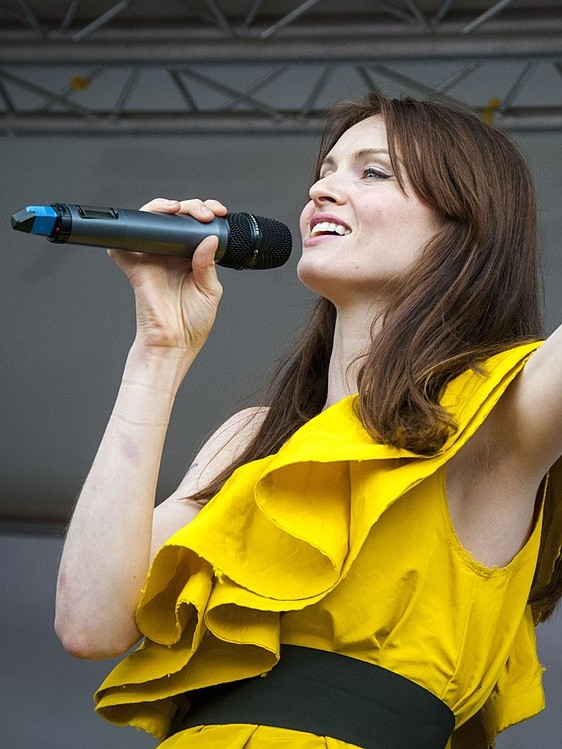
Think you, or someone you know, might have dyscalculia?
We are all on a spectrum of confidence and ease with maths. Many adults lack confidence with numbers, or have 'maths anxiety' which can get in the way of dealing with numbers and data in daily life – causing similar effects to dyscalculia.
For information and support, head to The Dyscalculia Network. Or, you can arrange to be assessed for dyscalculia by contacting the Helpline at the British Dyslexia Association.
Cher photo credit: Raph_PH, CC BY-SA 4.0, via Wikimedia Commons/ Cropped from original
Larry Mullen Jr. photo credit: U2start, CC BY 2.0, via Wikimedia Commons / Cropped from original
Meera Syal photo credit: The Asian Awards, CC BY 3.0, via Wikimedia Commons / Cropped from original
Robbie Williams photo credit: Drew de F Fawkes, CC BY 2.0, via Wikimedia Commons
Roman Kemp photo credit: Soccer Aid for UNICEF, CC BY 3.0, via Wikimedia Commons
Shaparak Khorsandi photo credit: Jwslubbock, CC BY-SA 4.0, via Wikimedia Commons / Cropped from original
Sophie Ellis-Bextor photo credit: Bryan Ledgard, CC BY 2.0, via Wikimedia Commons / Cropped from original
Photos also cropped and grayscaled in main article image.

